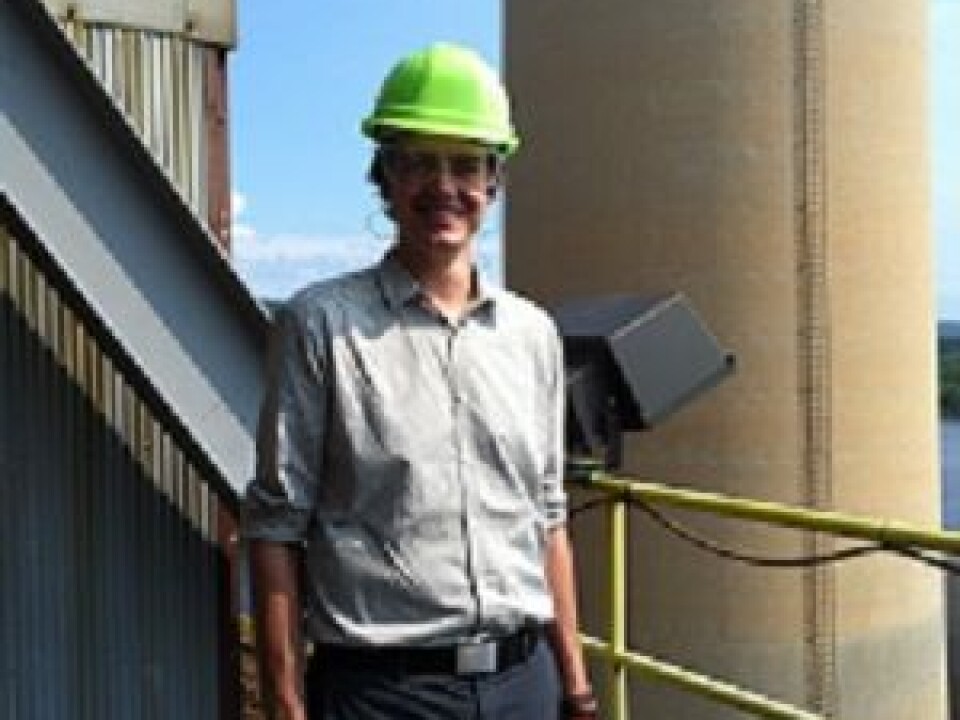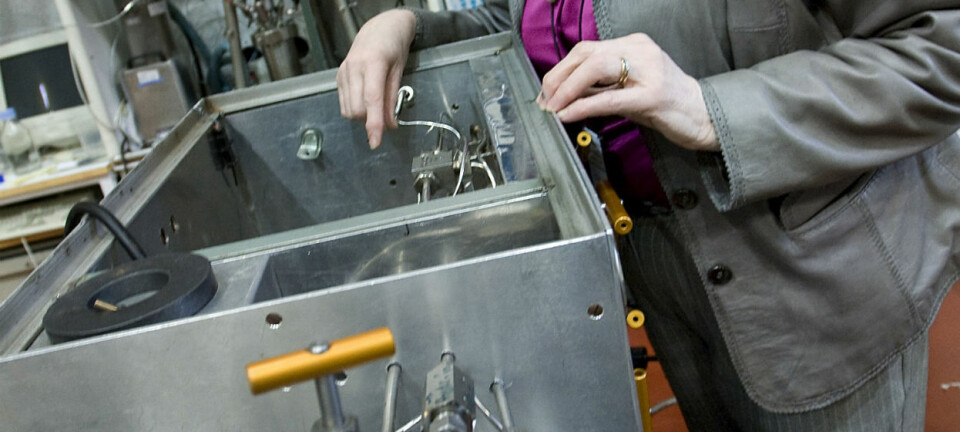An article from University of Oslo

The sense and sensibility of carbon capture
The debate about carbon capture is not mainly about how efficient the technology is. The language used by its advocates is just as important.
Denne artikkelen er over ti år gammel og kan inneholde utdatert informasjon.
Former prime minister of Norway Jens Stoltenberg has been summoned by Parliament to explain why he chose to spend billions of kroner on building a test centre for carbon capture at Mongstad.
In Stoltenbergs’ narrative this project was to be Norway’s moon landing.
However, it never even made it off the ground.
"There is big money linked to carbon capture, both in Norway and internationally," says Mads Dahl Gjefsen, phd-candidate at the Centre for technology, innovation and culture at the University of Oslo.

"In other words, actors with strong and diverse interests."
Expensive technology
Technology for capture, transport and storage of carbon (CO2), often referred to as CCS, has been in use for decades. Still, the technology requires too much energy and investment to be applied on an industrial scale.
Gjefsen has studied the different groups that influence the development of such technology: the industry, politicians and lobby organizations. These are the key players that define the value of this technology for society and the climate.
Part of his research has compared the debate about CCS in the EU and USA.
The results were recently published in the journal Science & Technology Studies.
Powerful interests
Big money tends to attract powerful interests.
If carbon capture and storage was an efficient and inexpensive technology the world could be saved for harmful CO2-emissions. One would think that was in everybody’s interest.
"It’s not quite that simple. At this stage CCS is a developing technology that will require substantial investments. The big question is who should pay for its development, and who will benefit from it. The development of technology is a political question," says Gjefsen.
Bush and Bellona
Environmental organizations such as Greenpeace reject CCS as the technology could facilitate a prolonged use of fossil energy. Hence the oil, gas and coal industries could benefit from it.
Others, such as The Bellona Foundation, highlight the current dependence on fossil fuels and believe that we will need CCS to help mitigate the climate problem. As such, marked mechanisms that favour the climate are welcomed.
Former American president George W. Bush argued that investment in carbon capture and storage would provide American jobs. This led to surprising alliances between industry and environmentalists. Bush agreed with the Bellona Foundation on the question of CCS.
"Bush was not a climate hero, but at the turn of the millennium he did support CCS. The technology gave him the opportunity to appear as a strong and decisive leader with an alternative approach to the threat of climate change," explains Gjefsen and adds:
"It’s easier to sell technology development than regulations and restrictions. At the same time these investments legitimized slogans such as 'clean coal' and promised protection of American jobs."
The enthusiasm of the former president led to hope and expectations that carbon capture and storage could in fact be a solution to climate change. But with the shale gas revolution CCS is no longer on the agenda in Washington, as gas leads to lower CO2-emissions than coal.
"Still, Bush’s embrace of CSS shows that the debate was dressed in a political language. This is a direct parallel to the debate in Norway. Former Prime Minister Jens Stoltenberg emphasized that a carbon capture centre at Mongstad would strengthen Norway's image as an environmental friendly nation," says Gjefsen.
Nation building
Gjefsen’s research reveals how the development of carbon capture technology has been dominated by far more than the question of whether this technology can solve the problem of CO2-emissions.
"Arguments for or against CCS are to a high degree linked to nation building. The technology offers a vision of the future that puts politicians in a positive light," he says.
This point is highlighted by the constant search for new metaphors. Currently CCS is not the dominant term in USA, but rather CCUS. The “u” refers to use and is meant to highlight the alternative use of this technology.
CCS is not only linked to CO2-emissions but can also play a role in enhanced oil recovery, to increase total production of fossil fuels. American organizations emphasize this aspect to attract funding for the development of CCS from industry.
"Those in favor of CCS have to create a market for CO2 and need other motivating factors, in addition to climate change mitigation, in order to get the central actors interested in the technology," the scholar says.
EU and USA
The legislation on private property rights differs between the USA and the EU. An American landowner holds the rights to his or her property straight down to the earth's core.
Private actors interested in storing CO2 in the ground will have to compensate the land owner for the right to do so, which gives the local population a strong incentive to become involved in and support the process, according to Gjefsen.
This in turn gives environmental organizations the possibility to appeal to financial opportunities for individuals rather than to the more abstract need for climate change mitigation, when explaining why CCS is important.
"Such legislation gives a unique opportunity for a local interest, in contrast to the situation in Europe where the authorities traditionally manage the subsurface. Several European CCS projects have been stopped by local resistance due to a lack of information or compensation," says Gjefsen.
This illustrates that technology can have diverging meanings to different groups.
"Since technology is more than just physical objects it’s important to understand the societal mechanisms that influence our relationship with new technology," Gjefsen says.
New rules of the game
According to the scholar the success of CCS projects rely on gaining a better understanding of the social dynamics of the technology.
"In order for carbon capture and storage to play a role in climate change mitigation it’s vital to understand the global actors that promote or protest against it. I aim to understand the role of technology in society because technology alters our understanding of what is possible. The rules of the game are constantly changing, often with great and unforeseen consequences."
Hence new technology also affects democracy.
"We are all influenced by the technological choices we make as a society. It is interesting to look at when and how individual citizens are able to influence those decisions. Could it be that democratic processes are actually in the way of constructive solutions against climate change?"
Gjefsen’s project does not provide an answer to the question of whether or not carbon capture and storage is a solution. However, he’s not optimistic about the technology's future in Norway.
"My guess is that CCS will be too difficult to defend on a political level. Former Prime Minister Jens Stoltenberg created enormous expectations to the technology by comparing it to landing on the moon. Such high hopes also made the project very vulnerable to critique. The new government will have to distance themselves from this misjudged metaphor."
------------------
Read the Norwegian version of this article at forskning.no

































